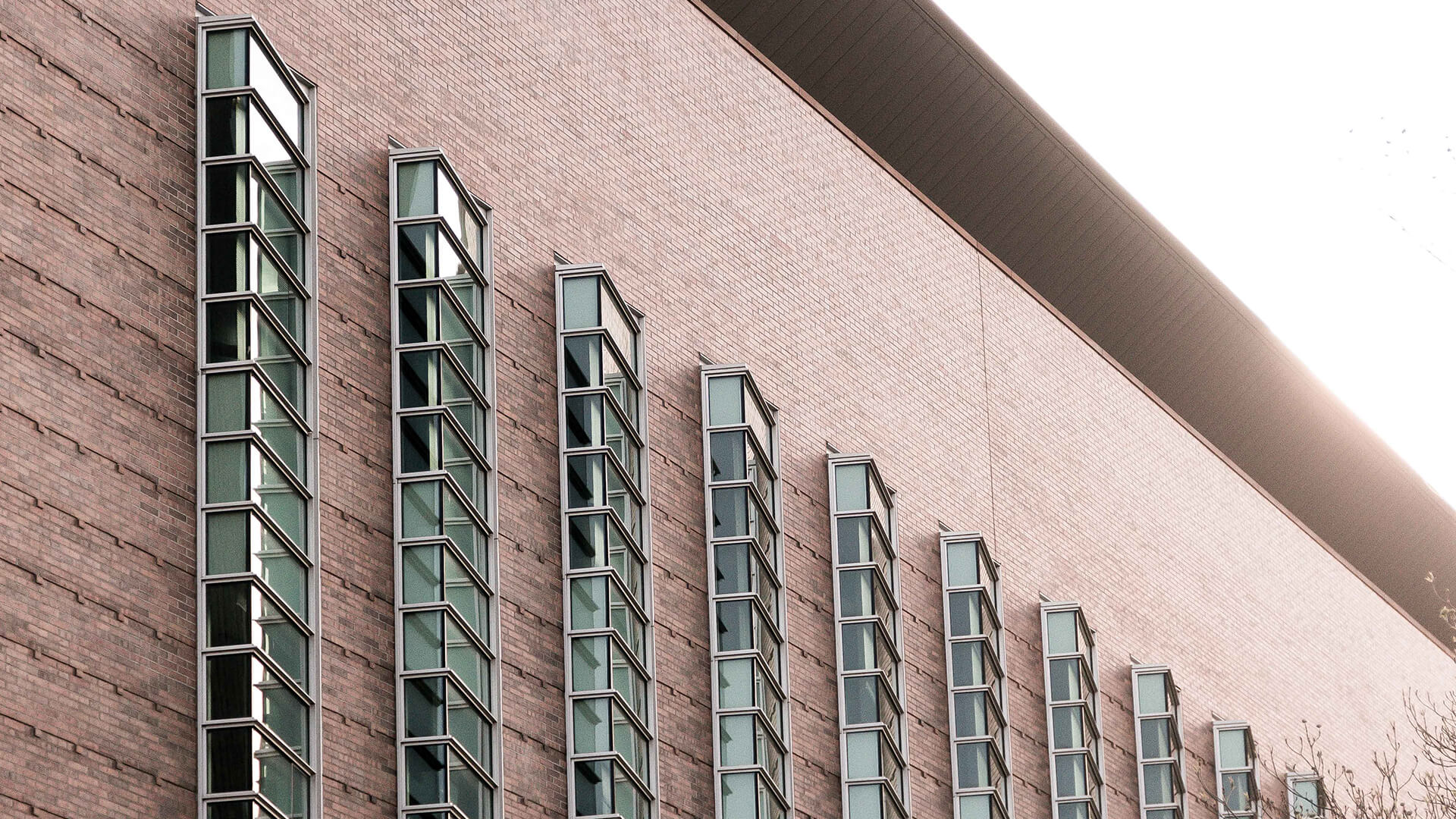
Tuesday, 12 April 2022 - Framed around the effects of fast-paced changes and their related challenges on “live-work-play” trends, Active Health’s latest series of webinars feature key industry experts and thought leaders as they navigate trending topics to harness health and wellness in building a high performing individual. This webinar, part of a monthly series, focused on sleep. The engaging fireside chat featured Dr Joshua Gooley, an Associate Professor with the Duke-NUS Medical School. During the session, Dr Gooley discussed how sleep affects you and your body.
Balancing the pillars of good health
The session kicked off with the audience being asked which of the options would they sacrifice to get more done in a day- meals, exercise or sleep.
Unlike most of the audience, Dr Gooley’s answer was “none of the above”. He argued that since all three are very important, he strives to find time for all these three domains. He surmised that for most of us, it is possible to do so if time is well managed.
Nutrition, exercise and sleep are all fundamental pillars of good health, each influencing one another. Thus, having insufficient sleep could result in an impact on other daily activities. Dr Gooley elaborated that one of the barriers to physical activity and exercise is having the motivation and discipline to do so. Insufficient sleep would erode the motivation that one has to do anything, not just physical activity. As a result, those with less sleep tend to be more sedentary.
Is sleep the same for everyone?
There are individual differences in sleeping needs which changes across various stages of life. For example, as a baby, one would sleep more than they would ever need in their lives. As one ages, the amount of sleep needed decreases. In adulthood, the recommended hours of sleep lie between 7-9 hours, though some might find six hours of sleep sufficient for them. While he acknowledged that achieving the recommended sleeping hours may be difficult for some, Dr Gooley suggested looking at it from another perspective- that there had been sufficient evidence to suggest that people who do sleep more are also more likely to be healthy and happy.
For those with insufficient sleep at night, napping would be a decent measure to help reduce the “sleep debt”- even if it is generally associated with negative health outcomes. However, Dr Gooley also emphasized that the act of napping is not the true culprit, since the reason would probably be due to insufficient sleep at night.
Dr Gooley then covered the common problem experienced by shift workers - the inability to sleep well during the day. For shift workers, it is very hard to get more than 4-5 hours of continuous sleep because the body clock is trying to keep them awake.
Shifting sleeping patterns in pandemic times
There were several large scale studies that have looked at sleeping patterns before and during the pandemic. Dr Gooley revealed that one consistent finding across these studies was that people had more time in bed for sleep. The studies noted an overall shift in sleep behaviour in which people were going to bed a little later, though at the same time, waking up much later. On average, that amounts to more than 20 minutes of additional sleep time.
Dr Gooley further added that the main drivers of the phenomenon were probably the increased flexibility in work schedules and the lack of commute time.
“We know that travelling to work influences the time that you wake up. During the pandemic, some of the changes that have taken place in the way we work have actually created a bit more time for sleep."
However, Dr Gooley also attested that there was evidence that sleep quality had worsened for several individuals. Some probable reasons that might contribute to poor sleep quality during the pandemic might be that some underwent a period of job insecurity, or they could be worried about the health of their loved ones. These can take a toll on one’s sleep quality.
Sleep and Performance
Dr Gooley believed that there were many learning opportunities which could be gleaned from elite athletes. Despite their gruelling training schedule, these top athletes still make it a point to include a healthy amount of sleep as part of their strategy. The reason? It contributes to having a competitive edge. Similar to elite athletes who value sleep to help them perform at their best, Dr Gooley encouraged the audience to incorporate this into their own strategy as they pursued their self-defined success.
But how far do traditional adages go, in terms of helping one achieve that level of discipline (for sleep)? After all, we sleep not because we want to, but because we have to. To that, Dr Gooley explained that one of the most consistent findings in sleep research is that people who spend more time on screens of any sort tend to have less sleep. So “put your phone away before bed” are other similar nagging phrases actually make some sense.
While Dr Gooley was not advocating for the end of smart devices, he felt that there was a need to rethink how these devices were used and their pervasiveness in our daily lives. He observed that many people struggle with managing their device usage in a way that allows them to continue to have a healthy lifestyle. He advised that one should reflect on how their time was spent over the period of a day- from the duration of screen time and whether or not this might be taking up or displacing time that we can spend on other things like exercise or sleep.
While discipline is a key factor in getting sufficient sleep, Dr Gooley also purported that it also partially came down to how one values things. He made reference to the quiz at the start of the session, whereby most in the audience were willing to sacrifice sleep to get more done. It is through similar insights that Dr Gooley found it meaningful to share with people the importance of sleep and hope it becomes increasingly valued. He stressed that having sufficient amounts of sleep would make everything else during the day feel easier. This could be exhibited in areas like productivity, socialization, and more.
Sleep Hygiene
A lot of people with hybrid working conditions complain that they were unable to fall asleep at night despite their fatigue. When asked if there were ways to deal with that anxiety, Dr Gooley remarked that the first thing he does for people who merely have difficulties with falling asleep at night is to look at their sleep hygiene.
Sleep hygiene refers to the practices that one engages in before going to sleep. Some examples of good sleep hygiene would be having a regular sleep schedule, going to bed at around the same time each night, and engaging in relaxing activities before getting into bed to help unwind.
There are behaviours to avoid as well. Dr Gooley shared that one common factor causing people to stay awake longer than they intended is caffeine. While consuming caffeine during the day to stay awake may be alright, what most people don’t realize is that it stays in your body for quite some time, like several hours. So if you take a tall glass of coffee after dinner, there’s a good chance that you still have a lot of caffeine working in your system when you want to go to bed!
Additionally, Dr Gooley explained that many people tend to nap quite late in the day. While this alleviates the sleep debt, it also alleviates the pressure to sleep. This can in turn prolong the time needed for one to fall asleep. Dr Gooley would also encourage us to create environments that are conducive to sleep. This could be having it dark(er), quiet, or resisting the temptation to keep looking at your phone.
Creating the right conditions for sleep is important. Over time, what happens is that people form a positive association between a bedtime routine, good sleep hygiene, and the ability to fall asleep. Conversely, people who have trouble falling asleep will often form negative associations - lying in bed but doing things that are keeping them awake. Their body is therefore not helping them make the transition to sleep.
A member of the audience asked how diets contribute to falling asleep. To that, Dr Gooley explained that those with good sleep habits generally have good lifestyle habits too. People who take care of themselves generally try to cover all aspects of their daily lives. On the flip side, those who sleep less have a larger window with which to eat. While that by itself doesn’t seem like much of a problem, Dr Gooley expressed his concern that, through his research, most people make use of the extra time to overeat. This tips the balance towards energy intake, rather than energy expenditure.
Since short sleep is associated with increased sedentary activity and overeating, Dr Gooley summarized that people with shorter sleeping hours on a chronic basis are more likely to gain weight and become obese.
What about power naps?
When you are sleep deprived and finally given the opportunity to sleep, you get a lot of deep sleep, and as Dr Gooley explained, the depth of that sleep can be quite strong. But he highlighted that while deep sleep does seem to play some restorative function, it alone is not enough to fully offset the effects of staying awake for a prolonged period of time. He further elaborated that despite the increase in slow-wave sleep, there are still deficits that arise as consequences of short sleep hours.
Long term effects of sleep deprivation
Dr Gooley revealed that there is a lot of epidemiological evidence that links short sleep to disease outcomes, one of which is diabetes. “Interestingly, if you were to experimentally expose people to sleep deprivation in a laboratory setting, you can induce changes in their blood glucose level.” And it just so happens that one of the hallmarks of diabetes is elevated blood glucose levels! “While we don’t induce diabetes in a week or two, you can imagine that if somebody engages in short sleep over the course of years or decades that it is going to leave chronic effects on the body.” It is these gradual changes that you don’t notice immediately that become scary once they accumulate.
It doesn’t end there either. Many of the major burdens on society and families, like stroke and dementia have been linked to shorter sleep durations. Dr Gooley would emphasize that while it isn’t a simple, direct, relationship, a history of such behaviour is likely to be a contributing factor to disease risk.
Sleep apnea, for the uninitiated, is a sleep disorder in which the airway closes during sleep. While it is normal for muscles to relax during sleep, leading to the narrowing of your airways, it is abnormal to observe a complete collapse of the airway. When this happens, the body’s response is to wake up to maintain oxygen intake.
What is often noticed first is the loud snoring or gasping during the night. Dr Gooley urged us to pay closer attention if our bed partners/loved ones exhibit such gasps or loud snoring during sleep. If left untreated, sleep apnea can lead to hypertension and other negative health outcomes. Fortunately, sleep apnea is a common condition that is treatable. One such solution is to introduce a special mask that helps to make sure that the wearer’s airways remain open.
Sleep Tracking
Tracking your sleep can be useful for many people simply because it makes you aware of what you are doing. Some people may be unaware that they have short sleep, so sleep tracking helps them realize that and subsequently set goals to improve their sleep habits. Yet, Dr Gooley admitted that it can also be stressful - he personally became obsessed when he started tracking his own sleep! He found that he was spending too much time checking how he was doing, rather than actually looking after his own health. He would advise that maintaining awareness, while avoiding obsession, would be a good way to go about it.
Alcohol and REM Sleep
Historically, alcohol has been commonly prescribed to help people (even children) fall asleep faster. So alcohol can reduce the time it takes for you to fall asleep. Yet, Dr Gooley stressed that this should not be taken out of context. This is because alcohol intake disrupts your natural circadian rhythm for sleep, in addition to strongly disrupting rapid eye movement (REM) sleep. Effectively, alcohol mucks with the architecture of your sleep, so it is not advisable to be drinking if one intends to sleep well.
REM sleep is quite different to the other stages of sleep in that the brain is actually quite active during this period. It is also the period of time when we are most likely to have vivid dreams. While scientists have yet to fully understand the role that REM sleep plays, there is some evidence from the learning literature that REM sleep is important for emotional memory and motor memory. For athletes, this is especially important since they need to become experts in the required techniques in their chosen sport.
The only concern that might be, is if you are waking up a lot during the course of the night from REM sleep. This could be a signal of sleep fragmentation. Ideally, even though you might wake up during sleep, you would fall back into slumber right away. But if you have a dream fresh in your mind, you might recall it, start thinking about it and thus have trouble falling back asleep.
Main Takeaways
Since it is hard to get a good night’s sleep on a daily basis, Dr Gooley advised us not to have the unreasonable expectation that we can achieve it. Instead, he encouraged us to dedicate the time to sleep because at least we are giving ourselves a chance to have healthy sleep. Sleep, while it takes time, should not be viewed as a waste of time because it makes your waking hours better. If that means sleeping for 30 minutes, it would still be a good exchange.

Spend some time reflecting on the duration and quality of your sleep, then take it one step further if it isn’t good to figure out the cause and solution. Better beats perfect!
➤ Watch the Session Highlights here:
➤ Read More:
- Movement and Exercise is Medicine
- Movement, Exercise, and Health Coaching
- Active Ageing, Healthy Districts
- Self-Care and Ageing Well
- Play & Energy Management
- How to Manage Your Energy for Better Performance
- Mental Wellness and Resilience
- Mental Health & Mental Wellness
- Nutrition & Sustainability
- Nutrition & Sustainable Environments

















